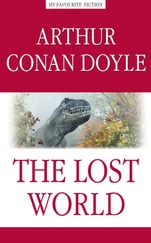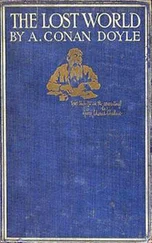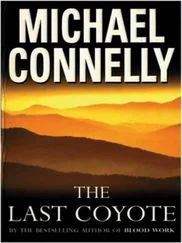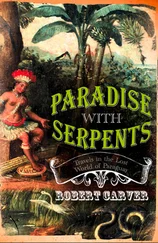Michael Crichton - The Lost World
Здесь есть возможность читать онлайн «Michael Crichton - The Lost World» весь текст электронной книги совершенно бесплатно (целиком полную версию без сокращений). В некоторых случаях можно слушать аудио, скачать через торрент в формате fb2 и присутствует краткое содержание. Жанр: Детская проза, на английском языке. Описание произведения, (предисловие) а так же отзывы посетителей доступны на портале библиотеки ЛибКат.
- Название:The Lost World
- Автор:
- Жанр:
- Год:неизвестен
- ISBN:нет данных
- Рейтинг книги:5 / 5. Голосов: 1
-
Избранное:Добавить в избранное
- Отзывы:
-
Ваша оценка:
- 100
- 1
- 2
- 3
- 4
- 5
The Lost World: краткое содержание, описание и аннотация
Предлагаем к чтению аннотацию, описание, краткое содержание или предисловие (зависит от того, что написал сам автор книги «The Lost World»). Если вы не нашли необходимую информацию о книге — напишите в комментариях, мы постараемся отыскать её.
The Lost World — читать онлайн бесплатно полную книгу (весь текст) целиком
Ниже представлен текст книги, разбитый по страницам. Система сохранения места последней прочитанной страницы, позволяет с удобством читать онлайн бесплатно книгу «The Lost World», без необходимости каждый раз заново искать на чём Вы остановились. Поставьте закладку, и сможете в любой момент перейти на страницу, на которой закончили чтение.
Интервал:
Закладка:
"No," Malcolm said, "I am quite sure they never will."
"You sound hopeful."
He shook his head, and got awkwardly in the car, swinging his bad leg tinder the steering wheel. Harding climbed in beside him. He glanced at her, and turned the key in the ignition. They drove back to the Institute.
The following day, she went back to Africa. During the next eighteen months, she had a rough sense of Levine's progress, since from time to time he called her with some question about field protocols, or vehicle tires, or the best anaesthetic to use on animals in. the wild. Sometimes she got a call from Doc Thorne, who was building the vehicles. He usually sounded harassed.
From Malcolm she heard nothing at all, although he sent her a card on her birthday. It arrived a month late. He had scrawled at the bottom, "Have a happy birthday. Be glad you're nowhere near him. He's driving me crazy."
FIRST CONFIGURATION
"In the conservative region far from the chaotic edge,
individual elements coalesce slowly, showing no clear pattern."
IAN MALCOLM
Aberrant Forms
In the fading afternoon light, the helicopter skimmed low along the coast, following the line where the dense jungle met the beach. The last of the fishing villages had flashed by beneath them ten minutes ago. Now there was only impenetrable Costa Rican jungle, mangrove swamps, and mile after mile of deserted sand. Sitting beside the pilot, Marty, Guitierrez stared out the window as the coastline swept past. There weren't even any roads in this area, at least none that Guitierrez could see.
Guitierrez was a quiet, bearded American of thirty-six, a field biologist who had lived for the last eight years in Costa Rica. He had originally come to study toucan speciation in the rain forest, but stayedon as a consultant to the Reserva Biologica de Carara, the national park in the north. He clicked the radio mike and said to the pilot, "How much farther?"
"Five minutes, Senior Guitierrez."
Guitierrez turned and said, "It won't be long now." But the tall man folded up in the back seat of the helicopter didn't answer, or even acknowledge that he had been spoken to. He merely sat, with his hand on his chin, and stared frowning out the window.
Richard Levine wore sun-faded field khakis, and an Australian slouch hat pushed low over his head. A battered pair of binoculars hung around his neck. But despite his rugged appearance, Levine conveyed an air of scholarly absorption. Behind his wire-frame spectacles, his features were sharp, his expression intense and critical as he looked out the window.
"What is this place?"
"It's called Rojas."
"So we're far south?"
"Yes. Only about fifty miles from the border with Panama."
Levine stared at the jungle. "I don't see any roads," he said. "How was the thing found?"
"Couple of campers," Guitierrez said. "They came in by boat, landed on the beach."
"When was that?"
Yesterday. They took one look at the thing, and ran like hell."
Levine nodded. With his long limbs folded up, his hands tucked under his chin, he looked like a praying mantis. That had been his nickname in graduate school; in part because of his appearance - and in part because of his tendency to bite off the head of anyone who disagreed with him.
Guitierrez said, "Been to Costa Rica before?"
"No. First time," Levine said. And then he gave an irritable wave of his hand, as 'if he didn't want to be bothered with small talk.
Guitierrez smiled. After all these years, Levine had not changed at all. He was still one of the most brilliant and irritating men in science. The two had been fellow graduate Students at Yale, until Levine quit the doctoral program to get his degree in comparative zoology instead. Levine announced he had no interest in the kind of contemporary field research that so attracted Guitierrez. With characteristic contempt, he had once described Guitierrez's work as "collecting parrot crap from around the world."
The truth was that Levine - brilliant and fastidious - was drawn to the past, to the world that no longer existed. And he studied this world with obsessive intensity. He was famous for his photographic memory, his arrogance, his sharp tongue, and the unconcealed pleasure he took in pointing out the errors of colleagues. As a colleague once said, "Levine never forgets a bone - and he never lets you forget it, either."
Field researchers disliked Levine, and he returned the sentiment. He was at heart a man of detail, a cataloguer of animal life, and he was happiest poring over museum collections, reassigning species, rearranging display skeletons. He disliked the dust and inconvenience of life in the field. Given his choice, Levine would never leave the Museum. But it was his fate to live in the greatest period of discovery in the history of paleontology. The number of known species of dinosaurs had doubled in the last twenty years, and new species were now being described at the rate of one every seven weeks, Thus Levine's worldwide reputation forced him to continually travel around the World, inspecting new finds, and rendering his expert opinion to researchers who were annoyed to admit that they needed it.
"Where'd you come from?" Gtiitierrez asked him.
"Mongolia," Levine said. "I was at the Flaming Cliffs, in the Gobi Desert, three hours out of Ulan Bator."
"Oh? What's there?"
"John Roxton's got a dig. He found an incomplete skeleton he thought might be a new species of Velociraptor, and wanted me to have a look."
"And?"
Levine shrugged. "Roxton never really did know anatomy, He's an enthusiastic fund-raiser, but if he actually uncovers something, he's incompetent to proceed."
"You told him that?"
"Why not? It's the truth."
"And the skeleton?"
"The skeleton wasn't a raptor at all," Levine said. "Metatarsals all wrong, pubis too ventral, ischium lacking a proper obturator, and the long bones much too light. As for the skull…" He rolled his eyes. "The palatal's too thick, antorbital fenestrae too rostra], distal carida too small - oh, it goes on and on. And the trenchant ungual's hardly present. So there we are. I don't know what Roxton could have been thinking. I suspect he actually has a subspecies of Stenonychosaurus, though I haven't decided for sure."
"Stenonychosaurus?" Guitierrez said.
"Small Triassic carnivore - two meters from pes to acetabtiltim. In point of fact, a rather ordinary theropod. And Roxton's find wasn't a particularly interesting example. Although there was one curious detail. The material included an integtimental artifact - an imprint of the dinosaur's skin. That in itself is not rare. There are perhaps a dozen good skin impressions obtained so far, mostly among the Hadrosauridae. But nothing like this. Because it was clear to me that this animal's skin had some very unusual characteristics not previously suspected in dinosaurs - "
"Senores," the pilot said, interrupting them, "Juan Fernandez Bay is ahead."
Levine said, "Circle it first, can we?"
Levine looked out the window, his expression intense again, the conversation forgotten. They were flying over jungle that extended up into the hills for miles, as far as they could see. The helicopter banked, circling the beach.
"There it is now," Guitierrez said, pointing out the window.
The beach was a clean, curving white crescent, entirely deserted in the afternoon light. To the south, they saw a single dark mass in the sand. From the air, it looked like a rock, or perhaps a large clump of seaweed. The shape was amorphous, about five feet across. There were lots of footprints around it.
"Who's been here?" Levine said, with a sigh.
"Public Health Service people came out earlier today."
Читать дальшеИнтервал:
Закладка:
Похожие книги на «The Lost World»
Представляем Вашему вниманию похожие книги на «The Lost World» списком для выбора. Мы отобрали схожую по названию и смыслу литературу в надежде предоставить читателям больше вариантов отыскать новые, интересные, ещё непрочитанные произведения.
Обсуждение, отзывы о книге «The Lost World» и просто собственные мнения читателей. Оставьте ваши комментарии, напишите, что Вы думаете о произведении, его смысле или главных героях. Укажите что конкретно понравилось, а что нет, и почему Вы так считаете.









